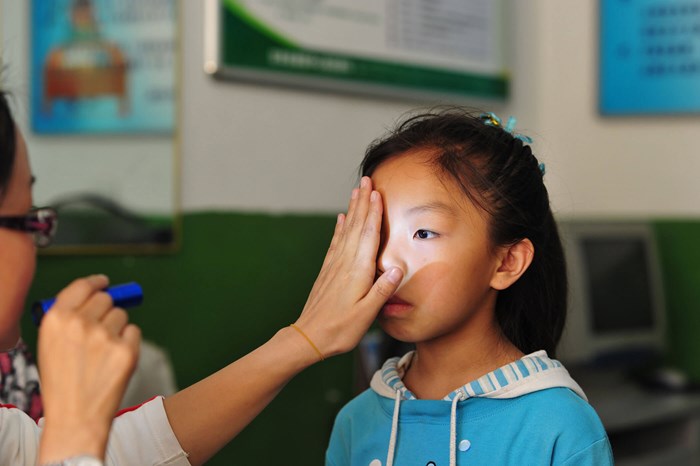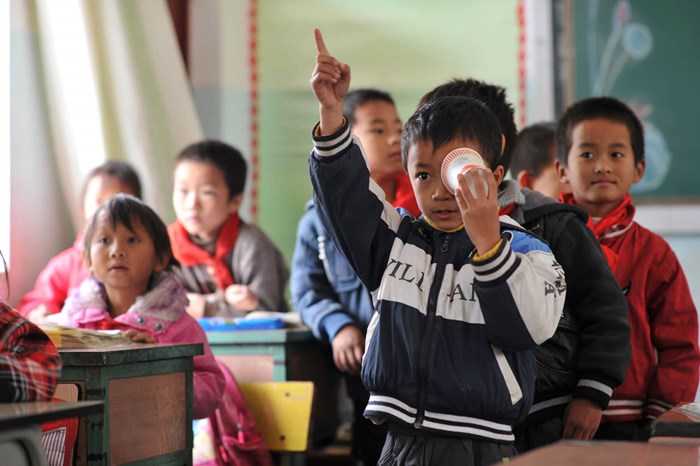In 2022, leading eye care charity Orbis published research showing that children with poor vision are more likely to suffer with depression, anxiety, low self-esteem and a reduced quality of life.
This is because children with eye conditions such as uncorrected refractive error and strabismus ('squint') tend to participate in fewer physical activities, have lower academic achievement and are more socially isolated than their peers without visual impairment.
Globally, an estimated 1.4 million children under the age of 14 years are blind and 68.7 million children are living with visual impairment. Uncorrected refractive error is the leading cause of vision impairment amongst children. The condition is caused when the shape of the eye prevents light from focusing on the retina, leading to blurry vision.

Evidence for an association between poor vision and mental health disorders in children, while strong, still falls short of definitively proving that poor vision leads to mental health conditions. To prove that glasses and other vision care definitely reduces the burden of disorders such as anxiety and depression requires a particular kind of high-quality research design called a 'randomised trial'. Only this kind of strong evidence is sufficient to motivate governments and other key stakeholders to invest in glasses as a means of improving children’s mental health.
Following the results of the review in 2022, Orbis is now launching a new trial in Henan, rural western China, to clarify with certainty whether providing free glasses to secondary school students reduces their risk of depression and anxiety.
Orbis has chosen China for this study because it has the world’s largest number of children suffering from uncorrected refractive error. In some areas, half of secondary school children require glasses, but the very large majority of them do not have the glasses they need to improve their vision.

Orbis’ important new study, called SWISH (See Well to Stay in School), will compare the mental health status of children randomised to receive glasses immediately vs those who will receive prescriptions only, who will be dispensed glasses at the end of the study, after two years.
SWISH will also examine whether free glasses can help boost the proportion of rural Chinese children attending high school, currently less than half in many areas. The opportunity to attend high school, which opens up the pathway to university, is a life-changing cross-roads in a child’s life.
Professor Nathan Congdon, Director of Research at Orbis International, says, “We believe that this study can create a strong incentive for governments across the world to invest in vision screening and glasses for all children. What holds us back at this point is the lack of high-quality data, and it makes me proud and excited to know that Orbis is uniquely positioned to fill this crucial evidence gap, which can unlock life-changing investments from governments.”
This was an outcome recently achieved through Orbis’ successful REACH project in Nepal, which encouraged the government to integrate eye health into school health programmes.
Research such as this helps to reinforce the need for access to quality eyecare for all, to initiative improvements to services across the world.



